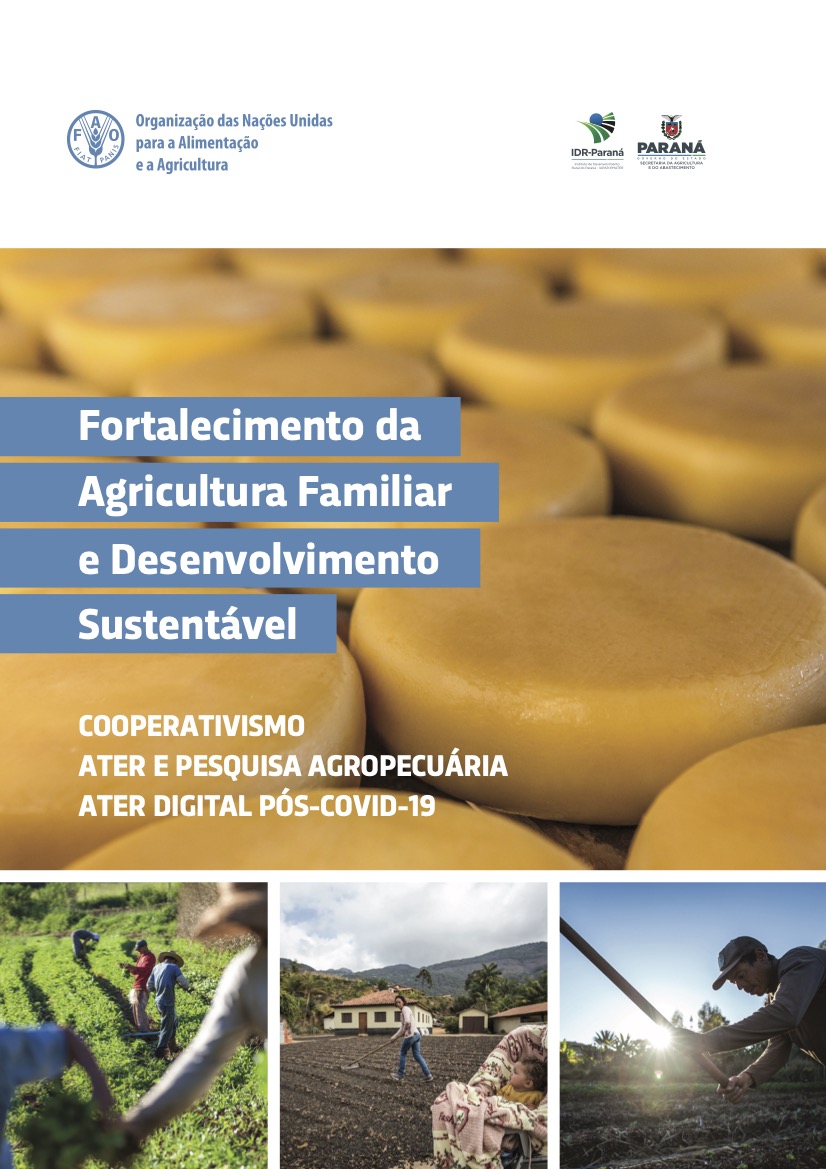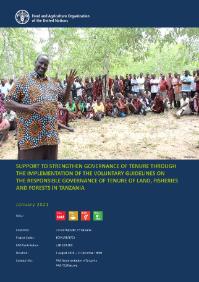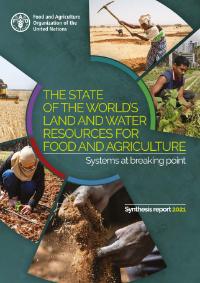Location
The Food and Agriculture Organization of the United Nations leads international efforts to defeat hunger. Serving both developed and developing countries, FAO acts as a neutral forum where all nations meet as equals to negotiate agreements and debate policy. FAO is also a source of knowledge and information. We help developing countries and countries in transition modernize and improve agriculture, forestry and fisheries practices and ensure good nutrition for all. Since our founding in 1945, we have focused special attention on developing rural areas, home to 70 percent of the world's poor and hungry people.
Members:
Resources
Displaying 16 - 20 of 168Fortalecimento da agricultura familiar e desenvolvimento sustentável
Em 2020, a FAO deu início ao projeto “Apoio ao Programa de Fortalecimento do Cooperativismo na Agricultura Familiar - TCP/BRA/3702/C2”, por meio do escritório de projetos sul da FAO no Brasil, em parceria com a Secretaria de Agricultura e Abastecimento do Estado do Paraná (SEAB) e IDR-Paraná.
Support to Strengthen Governance of Tenure through the Implementation of the Voluntary Guidelines on the Responsible Governance of Tenure Of Land, Fisheries and Forests in Tanzania - TCP/URT/3702
Land has played a critical role in the development of the United Republic of Tanzania, with the roots of land tenure frameworks, issues and conflicts dating back hundreds of years Current land laws in the country are seen as progressive policies and legislation recognize the equal rights to land of men and women, including unregistered rights under customary laws, and any transfer of rights requires the consent of local people In practice, however, land tenure rights are disputed among village, district and national administrative authorities, and conflicts over land are common, widespread
El estado de los recursos de tierras y aguas del mundo para la alimentación y la agricultura - Sistemas al límite
Los recursos de aguas, tierras y suelos del mundo están sometidos a presiones debido a que deben satisfacer la mayor demanda de alimentos. La agricultura reviste importancia para mitigar estas presiones y contribuir positivamente a los objetivos relacionados con el clima y el desarrollo. Las prácticas agrícolas sostenibles pueden dar lugar a mejoras directas en el estado de la tierra, el suelo y el agua, así como generar beneficios ecosistémicos y reducir las emisiones derivadas de la tierra.
The State of the World’s Land and Water Resources for Food and Agriculture – Systems at breaking point (SOLAW 2021)
Satisfying the changing food habits and increased demand for food intensifies pressure on the world’s water, land and soil resources. However, agriculture bears great promise to alleviate these pressures and provide multiple opportunities to contribute to global goals. Sustainable agricultural practices lead to water saving, soil conservation, sustainable land management, conservation of natural resources, ecosystem and climate change benefits. Accomplishing this requires accurate information and a major change in how we manage these resources.
Women’s leadership and gender equality in climate action and disaster risk reduction in Africa – A call for action
This brief builds on the recommendations from the webinar jointly organized by FAO, ARC and WFP on
“Advancing Women’s Leadership in Climate Action and Governance” in March 2021. It was prepared by
FAO Regional Office for Africa Gender and Climate Change teams, in collaboration with the Africa Risk
Capacity Gender Team




